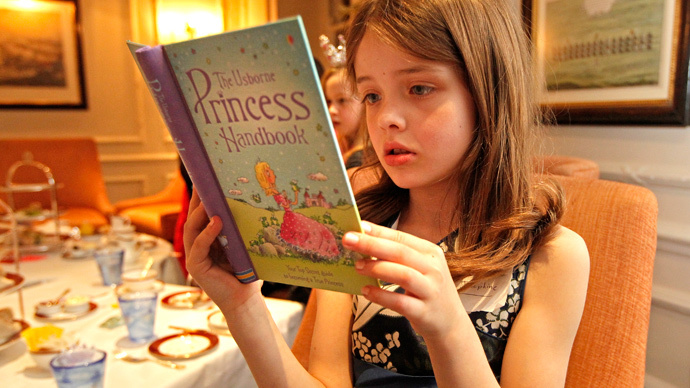White UK kids 'less likely' to enjoy reading than other ethnic groups - study

White British kids are not big readers. According to a major study, they are "least likely" to enjoy reading and "more likely" to hold negative attitudes towards reading compared with their contemporaries from other ethnic backgrounds.
The figures from the survey conducted by the National Literacy
Trust (the only national charity dedicated to raising
literacy levels in the UK) speak louder than words: While 61.1
percent of Asian children and nearly 60 percent of black children
say they are fans of reading, only 53.6 percent of white
youngsters appear to enjoy reading.
By contrast, children and young people from Asian ethnic
backgrounds are less likely to read outside the classroom every
day than young people from other ethnic backgrounds (White 42.2
percent; Asian 39.8 percent; Black 42.8 percent).
Kids and teens from white backgrounds are also less likely to
subscribe to the message that reading is cool. Only 38.4 percent
of them think so, as compared to 48.3 percent of Asian and 46.4
percent of black kids.
On top of this, 17.7 percent of white kids who took part in the
survey owed up they would be embarrassed if friends saw them
reading.

More children and young people from white backgrounds also admitted that they don't read as well as other classmates and are least likely to agree that the better they read, the better job they may get in the future.
The research has also shown that while there has been a dramatic increase in the number of children and youngsters who read outside class on a daily basis, girls have left boys behind.
The gap between the number of girls and boys who enjoy reading has also widened. Nearly half (46.5 percent) of girls say that they read outside class every day, compared with over a third of boys. (In 2013 over 36 percent of girls and 28 percent of boys said that they read outside class every day.)
While research has found that 6 in 10 children have a favorite book or story, what's alarming, the researchers say, is that one kid in four thinks his or her parents "don’t care if I spend any time reading." According to the National Literacy Trust, meanwhile, parental engagement with a child’s literacy development is a "key contributor to their success."
National Literacy Trust Director Jonathan Douglas has stated in the press release that "it is a real concern that a third of the most disadvantaged children think their parents do not care whether they read. More must be done to help parents realise what a difference reading with their children from a young age can make to their future."











